Dealing with complex feelings and working on them can be tough however with proper help and intervention, narcissistic abuse recovery is possible.
“Recovery unfolds in three stages. The central task of the first stage is the establishment of safety. The central task of the second stage is remembrance and mourning. The central focus of the third stage is reconnection with ordinary life.” Judith Herman, Trauma and Recovery
As a therapist specializing in the treatment of narcissistic abuse recovery, I am privileged to work with survivors in their journey of healing and moving forward to reclaim wellness. Many of my clients have been impacted by psychological abuse in love, work or family relationships. Most have experienced a form of sustained traumatic grief, which is also termed Complex PTSD (Post-Traumatic Stress Disorder) or C-PTSD.
Narcissistic Abuse Recovery
Treatment for this aptly termed complex fusion of anxiety, depression, grief, and reclamation of healthy relationships and self of sense is a multi-faceted process requiring much commitment by both therapist and client, unconditional positive regard of the therapist, and endurance and fortitude by both.
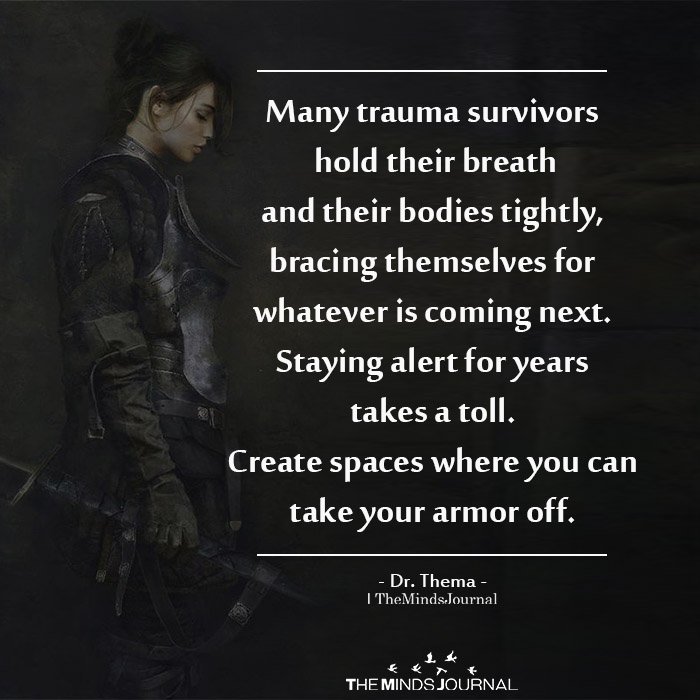
Fortunately, recovery is probable and hopeful, with skilled, compassionate help. I am honored to bear witness to the transformation before me with the incredible work my clients embark upon to reclaim their wellness.
Read 5 Major Relationship Red Flags That Trauma Survivors May Tend to Normalize
In the trauma literature, Judith Herman, author of the seminal work, Trauma and Recovery (1992) was the first to coin the term, Complex PTSD. Subsequently, many pioneers in the field of trauma have elaborated on the concept and addressed different pathways for healing to occur (see resources at end of article).
One of the more recent books published, entitled Complex PTSD: From Surviving to Thriving (2013) by trauma therapist Pete Walker, discusses C-PTSD as: “ C-PTSD is a more severe form of Post-Traumatic Stress Disorder. It is delineated from this better known trauma syndrome by five of its most common and troublesome features: emotional flashbacks, toxic shame, self-abandonment, a vicious inner critic and social anxiety”.
For individuals exposed to narcissistic abuse over a long stretch of time, whether in work, family or romantic relationships, the individual has absorbed trauma on many levels – physiologically, cognitively, and emotionally. Recovery work involves the integration of these three levels of the brain to “master” and release the trauma.
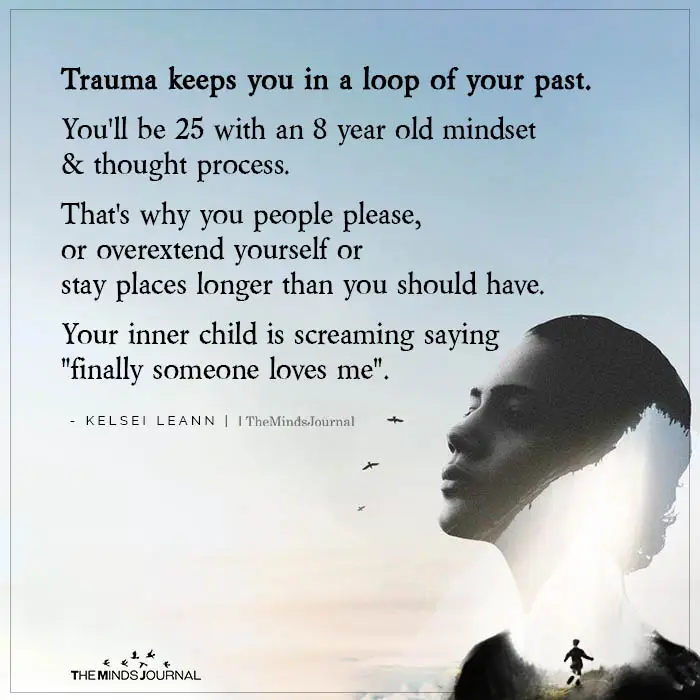
The work of Bessel van der Kolk in his ground-breaking book, The Body Keeps The Score: Brain, Mind and Body in the Healing of Trauma (2015) illuminates the options for blending an eclectic approach to interventions, including somatic work, mindfulness-based cognitive behavioral therapy, dialectical behavior therapy, and expressive arts, to name just a few.
Also helpful in the literature for survivors is the discussion of the trauma bond, which is so common in relationships with psychological abusers. Patrick Carnes’ work The Betrayal Bond: Breaking Free of Exploitive Relationships (1997) is also helpful in understanding what a trauma bond looks like and how a survivor can psychologically sever the tie connecting them with their abuser.
Carnes’ addresses the need to establish healthy connections with a community of support, establish and reinforce healthy boundaries with others, increase self-acceptance, psychoeducation of abuse cycles, and reclaiming an empowering narrative of recovery.
Read 10 Signs You Are Emotionally Wounded
Individuals impacted by psychological abuse need and deserve support by skilled trauma-informed clinicians who understand narcissistic abuse. We are living in a day and age where we can see narcissistic abuse present on many levels, be it in politics, community, work, home or love relationships. One of the first steps in healing from narcissistic abuse is the psychoeducation of this insidious form of psychological abuse.
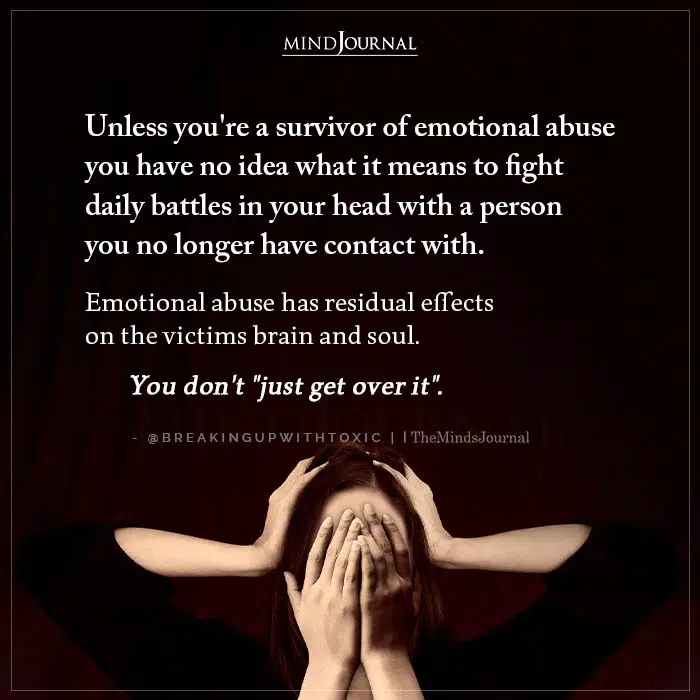
Subsequently, survivors are most helped by skilled strengths-focused, trauma-informed clinicians who understand the subtle nuances of narcissistic abuse recovery. Trauma work is often multi-dimensional and complex, just as recovery from C-PTSD could be described as excavating through various layers of healing.
With compassionate and informed help, survivors have an excellent opportunity to reclaim wellness and begin a new chapter of wellness and inner peace.
Written by Andrea Schneider, MSW, LCSW
Frequently Asked Questions (FAQs)
Can you get PTSD from years of emotional abuse from a toxic boss and emotionally abusive husband?
After a traumatic or upsetting event, one can develop PTSD, especially if you are exposed to high levels of stress or fear for an extended length of time.
What does PTSD look like from emotional abuse?
Dealing with an abusive relationship can lead to PTSD and it may show signs like avoiding certain places and people, intrusive thoughts, flashbacks or distressing dreams, etc.
What are some narcissistic abuse examples?
When understanding narcissistic abuse, one needs to understand that it can be in the form of manipulation, denial, emotional blackmail, gaslighting, etc.
Why was I attacked when I asked my partner to leave?
Getting attacked or humiliated in a relationship is a sign of toxicity. If you experience defensive attitude from your partner, it means that they are not willing to listen to you.
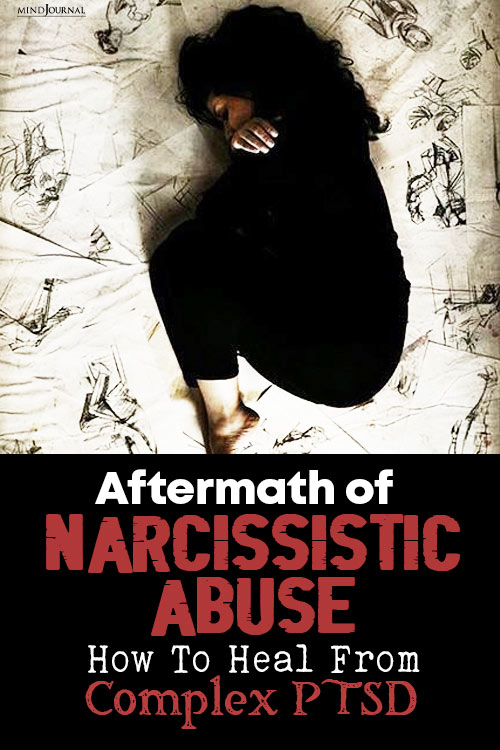
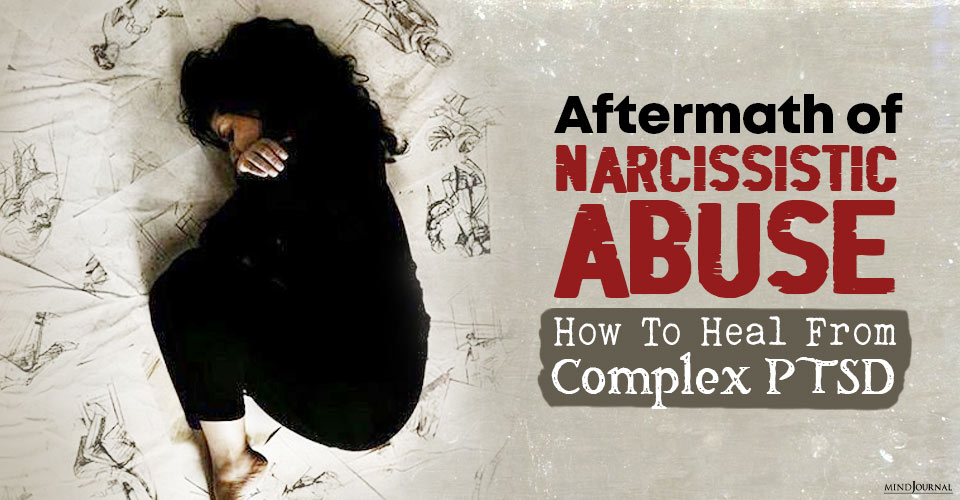







Leave a Reply
You must be logged in to post a comment.